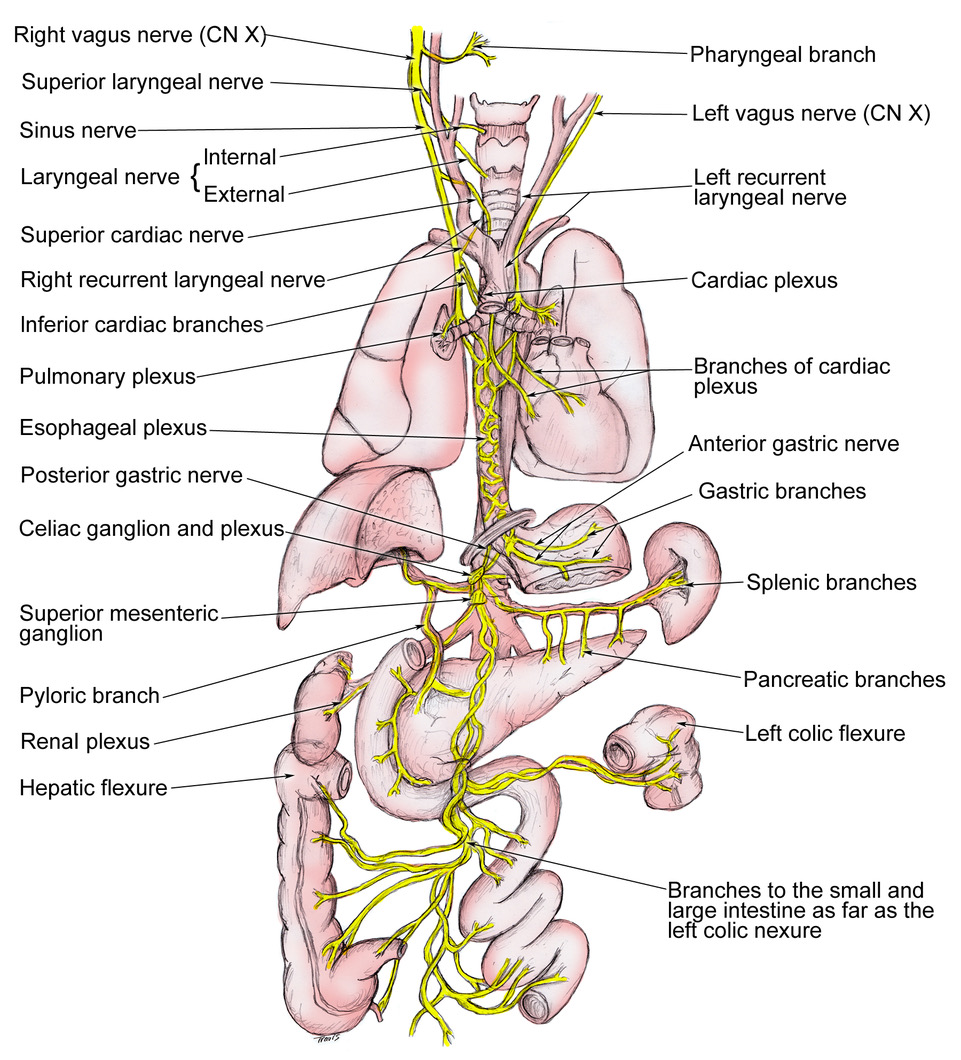The relationship between vagal tone, cranial alignment and the jugular foramen
I believe that many of the beneficial effects of this kind of treatment occur due to enhanced function of the vagus nerve through releasing muscle tension restrictions in the cranial system and I am currently collecting data to assess this.
Have you ever considered the base of your skull? It looks like this with many different openings for nerves to exit the skull and go into the body. One of these and one of the most important nerves is the vagus nerve. This nerve is responsible for many therapeutic effects in the body, including relaxation, gut motility, stomach acid, anti-inflammatory action, decreasing heart rate and blood pressure. It exits the skull through a gap between the temporal and occipital bones of the skull called the jugular foramen.
The vagus nerve is currently getting a lot of attention in the medical world. Research has shown that its stimulation produces positive effects on anxiety disorders, depression, post-traumatic stress, heart disease, obesity, eating disorders, migraines, leaky gut, bad circulation, memory and inflammatory arthritis. Disordered function of the vagus nerve has been found in diabetics and alcoholism.


There is even evidence that there is a correlation between engagement of the vagus nerve and a ‘flow state’, this sought after and sometimes fleeting state which allows one to perform at one’s best.
Have you ever noticed how uneven and asymmetrical people’s faces are? Or wondered why attractiveness is associated with facial symmetry? I believe we are programmed to select symmetry in faces as it represents health. When a skull is symmetrical, there is no restriction of the jugular foramen and therefore the vagus nerve can operate unimpeded. One can then remain cool, calm and collected, even in the face of pressure.
I am currently collecting data upon cranial misalignment specifically affecting the jugular foramen and the vagus nerve and its relationship to symptoms of stress, anxiety, depression and other disorders along this continuum, of which there are many.
I am looking for volunteers for my study
and would be very grateful to anyone wishing to help. Please contact me if you would like me to test you for cranial misalignment and vagus nerve function and or if you suffer from combinations of the following:
Stress
Inability to relax and or concentrate
Depression
Anxiety
PTSD
Addiction
Digestive and bowel disorders
Eating disorders such as anorexia bulimia
Pain
Colic as a baby
Birth trauma
I am interested to connect with academic researchers in this field, particularly those who have a patient group with decreased vagal tone.
Sponsorship
I am looking for sponsorship to further my research. Please contact me on 07733 473103.